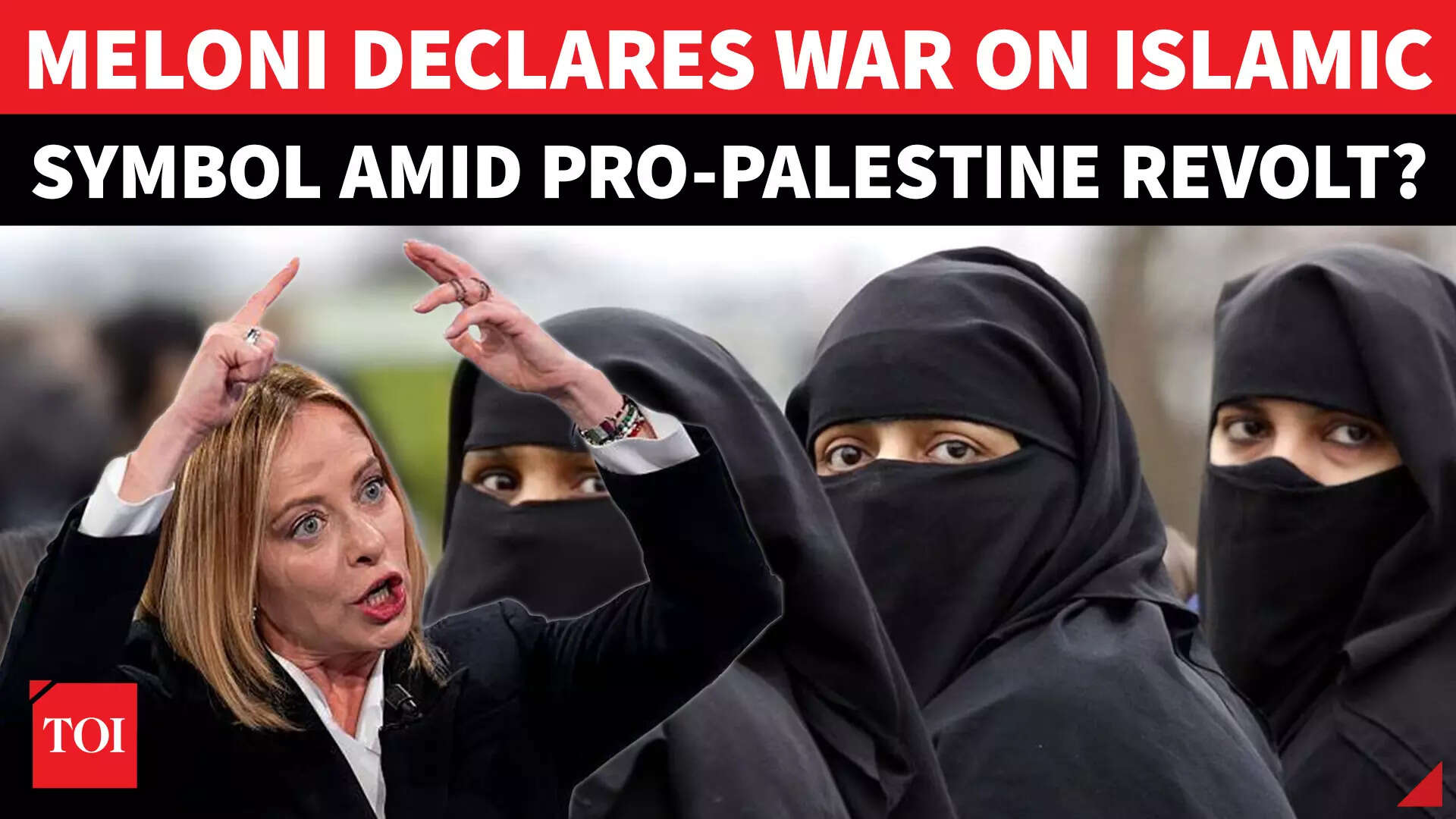Lifestyle
Italy’s Meloni Proposes Burqa Ban Amid Controversial Debate

Italian Prime Minister Georgia Meloni has introduced a contentious proposal to ban the burqa and similar garments that obscure facial features in public spaces. The draft legislation, put forth by her party, the Brothers of Italy, aims to enforce fines of up to €3,000 on individuals who violate the ban. This initiative has sparked significant debate regarding its implications for religious freedoms and cultural identity in Italy.
The proposed law extends beyond just clothing restrictions. It also seeks to enhance transparency within religious institutions by monitoring foreign funding. Additionally, the legislation includes provisions to prohibit practices such as virginity tests and forced marriages, which officials argue are detrimental to women’s rights. Supporters of the bill maintain that it serves to protect Italian identity and promote women’s freedom, while not infringing upon their religious rights.
Context of the Proposal
Similar legislative measures have been adopted in several European countries, including France, Belgium, and Denmark. These laws are aimed at curbing extremist practices and ensuring public safety. Advocates for the burqa ban in Italy argue that it is necessary to maintain public order, especially in areas like schools, offices, and commercial zones where identification and facial recognition are critical.
Critics of the proposal express concern that it may disproportionately target Muslim women and hinder their rights to express their faith through clothing. Human rights organizations have raised alarms about the potential societal division that such a law could exacerbate. They argue that the legislation may not only infringe upon individual freedoms but also foster an environment of discrimination.
Political and Social Reactions
The proposal has ignited discussions across the political spectrum in Italy. Some political figures have voiced their support, emphasizing the need for security and the protection of Italian values. Others, including members of opposition parties and various civil rights groups, are calling for a more nuanced approach that respects both public safety and religious freedoms.
Public opinion remains divided. Supporters of the ban argue that it is a necessary step toward integration and security, while detractors believe it could alienate certain communities. As the debate unfolds, the government’s next steps remain to be seen.
The proposed legislative changes by Georgia Meloni and her party signal a broader trend in European politics, where issues of identity, security, and cultural expression are increasingly at the forefront. The outcome of this proposal could have lasting implications for Italy’s social fabric and its approach to religious diversity.
-

 World7 months ago
World7 months agoSBI Announces QIP Floor Price at ₹811.05 Per Share
-

 Lifestyle7 months ago
Lifestyle7 months agoCept Unveils ₹3.1 Crore Urban Mobility Plan for Sustainable Growth
-

 Science6 months ago
Science6 months agoNew Blood Group Discovered in South Indian Woman at Rotary Centre
-

 World7 months ago
World7 months agoTorrential Rains Cause Flash Flooding in New York and New Jersey
-

 Top Stories7 months ago
Top Stories7 months agoKonkani Cultural Organisation to Host Pearl Jubilee in Abu Dhabi
-

 Science7 months ago
Science7 months agoNothing Headphone 1 Review: A Bold Contender in Audio Design
-

 Sports6 months ago
Sports6 months agoBroad Advocates for Bowling Change Ahead of Final Test Against India
-

 Top Stories7 months ago
Top Stories7 months agoAir India Crash Investigation Highlights Boeing Fuel Switch Concerns
-

 Business7 months ago
Business7 months agoIndian Stock Market Rebounds: Sensex and Nifty Rise After Four-Day Decline
-

 Sports6 months ago
Sports6 months agoCristian Totti Retires at 19: Pressure of Fame Takes Toll
-

 Politics7 months ago
Politics7 months agoAbandoned Doberman Finds New Home After Journey to Prague
-

 Top Stories7 months ago
Top Stories7 months agoPatna Bank Manager Abhishek Varun Found Dead in Well









